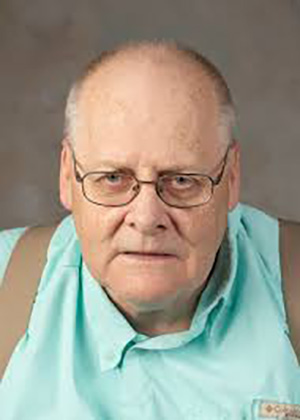By GREG MARKLEY
OPINION ––
The tale from grammar school of Spanish explorer Ponce de Leon searching for a Fountain of Youth is regarded as myth now. But what about our seeking a Fountain of Good Grades in our post-secondary professors? More students than we know pick courses by a teacher known as “an easy grader.”
There has been controversy for decades about entire university departments that are, by nature or design, less challenging than others. This concerns political conservatives. Recently, Hillsdale College President Larry Aarn made comments that insulted teachers and professors. If listeners at his speeches were waiting for a full apology, they do not know Aarn. He is a member of the far-right and is often far-wrong, but the crux of his current brouhaha has merit.
“Teachers are trained in the dumbest parts of the dumbest colleges in the country,” Aarn said of his recent contentious speech in early July. “I’ve made similar critiques of the education bureaucracy my entire career. This does not contradict my deep and abiding affection for teachers.”
He explained that Hillsdale students, then teachers and then the maintenance workers are the most important workers at the college. Based in southeast Michigan, there are approximately 1,500 students at the private liberal arts school. While in Tennessee visiting the governor, Aarn softened his statements.
“Dumb can mean ‘unintelligent,’ which I did not mean,” he said. “Dumb also means ‘ill-conceived’ or ‘mis-directed,’ which is sadly, a fitting description for many education schools.”
Hillsdale’s liberal arts curriculum is based on Western heritage as a product of Greco-Roman culture and Christian tradition. Core curriculum lists Great Books, U.S. Constitution, biology, chemistry and physics.
In “Annie Hall”, the 1977 movie by Woody Allen, he mentions a subject (philosophy) that is also not loved by many who think education courses are too easy and too liberal. A character says, “I was thrown out of college for cheating on the metaphysics exam; I looked into the soul of the boy sitting next to me.” In an article in the Federalist, Joy Pullmann showed support for Dr. Aarn.
She cites research conducted by Jay Schalin who reviewed hundreds of syllabi from education school courses. Schalin learned that they strongly promoted Marxism, cultural and otherwise: “The results are unequivocal: the ‘long march’ through the education schools has been successful; the most influential thinkers in our education schools are radicals who adhere to a collectivist, utopian vision.”
Looking back at when I was pursuing my master’s in education (2002-05) at AUM, I thought the history undergrad classes I was taking were more demanding and less ideological than the grad courses in education. I easily got all A’s in education classes and in my internship at Wetumpka High School.
I didn’t complain at the time, but I did tell some fellow students and friends that I disagreed with some of the education professors’ under-baked ideas. First, we were told not to give middle-school or high-school students assignments to do at home. So, we forfeited a chance to build their independence and self-reliance and to not be latch-key kids with nothing to do.
Both the homework and my second topic are still being debated in academic circles. The second is “don’t praise your students.” What? At a time that students are committing suicide partly because of school pressures? Don’t falsely or too generously praise them, but they need your support to gain self-confidence.
Teachers don’t usually know what sadness students have at home or with other children, so when they do well, they deserve praise. All of us expect a pat on the back when we excel, and a dressing-down when we falter. Are only the high school sports teams deserving of praise? What about those who shine in STEM, the arts or in attendance?
I also disagree with Aarn with his inference that a bunch of students go into education because it is not as rigorous academically as the sciences or similarly demanding majors. Sometime parents suggest (and often advocate for) certain majors, including ones a parent has been successful at. That is worth discussing, but students, remember, what career field you get a degree in, you yourself must enjoy it, because you may be in it for many years.
I wouldn’t be surprised if Aarn has in his sights changing the curriculum at public colleges and universities to mimic the religiosity of his own institution. That’s O.K. with a private school, but public schools have a more diverse stakeholder and taxpayer base. Ponce de Leon would tell him the cure to his broad, divisive statements on public education. It is not the Fountain of Good Grades, but the Fountain of Youth who Study Hard.
Greg Markley moved to Lee County in 1996. He has master’s degree in education and history. He taught politics as an adjunct in Georgia and Alabama. An award-winning writer in the Army and civilian life, he has contributed to the Observer since 2011. He is a member of the national Education Writers Association (focus-Higher Education). gm.markley@charter.net.

